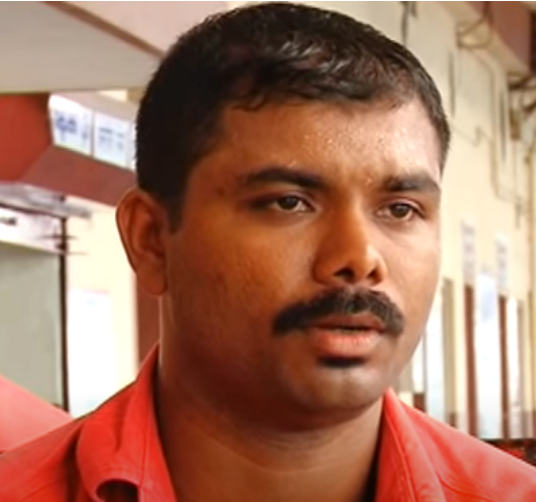In an inspiring story of perseverance and hard work, Sreenath K, a person working as a coolie at Ernakulam railway station, utilized the free WiFi provided by the railways to study for and ultimately pass the IAS exam, one of the India’s most challenging competitive government organize exam. UPSC can consumes an individual’s 8 to 10 years but Sreenath K cleared it after 3 attempts. Its not that he spend whole day using internet to study, he made all effort like every other aspirant but he utilized railway WIFI since his wages per day was not enough to cover mobile internet recharges and to feed his family. “Success isn’t just a matter of luck,” the journey of IAS Officer Sreenath K eloquently proves. “With strong intentions, even the most daunting destinations can be reached.”
Often, failure is attributed to a lack of resources, with many believing that success would have been theirs if only they had access to certain facilities but Sreenath had an eye for opportunities, where people would have unitilize free wifi for watching banned sites, Sreenath K used it for upgrading himself with knowledge. Hailing from Ernakulam, Kerala, Sreenath worked tirelessly as a coolie to support his family, with earnings ranging from Rs. 400 to Rs. 500 per day. Despite being the sole breadwinner in his family, he remained resolute in his pursuit of clearing the exam. Sreenath’s story, however, is a testament to overcoming such barriers. He never let the scarcity of resources shake his consistency to gain knowledge to prepare for exam. Instead, he saw opportunity in adversity, demonstrating that with the right mindset, limitations can be transcended.
The UPSC exam, attracting millions of aspirants annually, yearly around 30 lakhs apply for UPSC exam, with only a select few achieving success. While many spend fortunes on coaching and resources, Sreenath’s journey from a porter to an IAS officer, without the luxury of formal coaching, is a powerful narrative of making the most of what one has. Living in Ernakulam, Kerala, and working at the local railway station, Sreenath faced poverty that made traditional coaching only a dream.
Recognizing the potential of the free WiFi service provided by the railways at stations across India, Sreenath devised a plan to use this facility to its fullest. This initiative by the railways, aimed at enhancing the digital accessibility for travelers, inadvertently became a lifeline for Sreenath K. It allowed him the opportunity to download study materials and access online lectures, turning his smartphone into a gateway to knowledge and his porter job into a unique study regime. This story underscores how public facilities, when thoughtfully implemented, can have far-reaching positive impacts beyond their intended purposes.
His perseverance bore fruit when he successfully cleared the Kerala Public Service Exam (KPSC), yet he remained undeterred in his pursuit of higher goals. With sheer determination and the aid of accessible technology, Sreenath eventually conquered the UPSC Civil Services Exam on his fourth attempt, earning himself the prestigious title of an IAS officer. After successfully passing the KPSC exam using the railway’s WiFi, Sreenath set his sights on the UPSC exam. The railways’ initiative to provide free WiFi was initiated to enhanced passenger experience since online ticketing, checking train status, checking PR number, ticket confirmation has become a regular in a passenger’s routine while travelling but in case of Sreenath K it also demonstrated the pivotal role such facilities can play in empowering a poverty stricken individuals life, turning spaces of transit into arenas of learning and growth.
Sreenath’s success story is a powerful example to youths mentioning that dedication and the effective use of technology, even the most challenging goals are attainable. Sreenath K mentioned that restricting one’s from using technology without distraction is also big task. His journey from a coolie at Ernakulam station to an esteemed IAS officer was not a easy task, railways’ free WiFi service became a strong shoulder for him, is a beacon of inspiration for youths, showcasing the positive ripple effects of providing accessible technology in public spaces by government.
Frequently Asked Questions
Where is IAS Officer Sreenath K posted now?
Currently location is undisclosed
